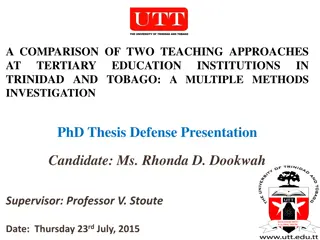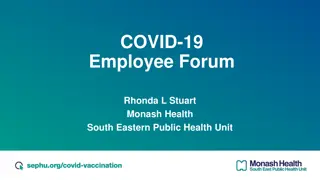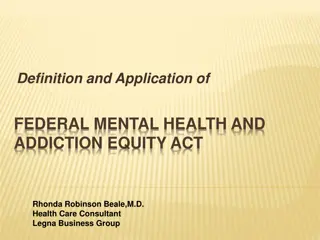
Elevating Student Voices in Education for College and Career Readiness
Discover how incorporating student voices can enhance educational discourse on college and career readiness programs, with insights from graduates of the District of Columbia Public School System. Engage in a comprehensive survey analysis highlighting challenges, teacher support, and real-world skills for success.
Download Presentation

Please find below an Image/Link to download the presentation.
The content on the website is provided AS IS for your information and personal use only. It may not be sold, licensed, or shared on other websites without obtaining consent from the author. If you encounter any issues during the download, it is possible that the publisher has removed the file from their server.
You are allowed to download the files provided on this website for personal or commercial use, subject to the condition that they are used lawfully. All files are the property of their respective owners.
The content on the website is provided AS IS for your information and personal use only. It may not be sold, licensed, or shared on other websites without obtaining consent from the author.
E N D
Presentation Transcript
+ The Forgotten Stakeholders Lifting Up Student Voices in Educational Discourse About College and Career Readiness By: Rhonda R. Crittendon
Research Question: How can students voices be incorporated in educational discourse to improve college and career readiness programs?
+ Rationale/Research Question: How can students voices be incorporated in educational discourse to improve college and career readiness programs? The District of Columbia Public School System has been tirelessly running on the hamster wheel of the 4 R s: Revision, Renewal, Reevaluation and Reconstruction of systems and programs that have not proven to be effective in the larger scheme of things for our children.
+Research Question: How can students voices be incorporated in educational discourse to improve college and career readiness programs? Disseminated to Trinity University and the Washington, DC Communities targeting students who graduated 3 to 6 years ago. What was your most challenging subject in high school? How supportive were teachers and staff at the school you attended? What do you think you need to be ready for college or the workforce? How prepared are you for college and/or the workforce?
+ Survey Questions Cont d What were some factors that made school difficult for you? How engaging were your teachers in school? Did you feel your teachers taught in a way that made it easy for you to learn? What are some skills you have found that are necessary to be successful in the real world?
+Survey Outcomes 35 surveys were distributed 31 college and/or workforce students respond 19 of the 31 students were DCPS graduates
+ Are you attending college/university, or are you in the workforce? Are you attending college/university, or in the re you attending college/university, or in the workforce? workforce?
+How supportive were teachers and staff at the school you attended?
+ What were some factors that made school difficult for you?
+ How engaging were your teachers in school?
+What do you think you need to be ready for college or the workforce?
+Did you feel your teachers taught in a way that made it easy for you to learn?
+Literature Review Youth Truth, A National Nonprofit Nationwide high school students feel unprepared for college. Students are less prepared for future careers; and generally they do not take advantage of support services that prepare them for their future goals Overview: State Definitions of College And Career Readiness (AIR September 2014) This article addresses the characteristics of various states, definitions of College and Career Readiness and the similarities. This list includes: Academic knowledge, Critical thinking/problem solving, Social & emotional learning, collaboration/communication, grit/resilience/perseverance, citizenship and community involvement.
+College & Career Readiness District of Columbia Public School (Definition): Eliminate remediation. Postsecondary studies with credits. Level of preparation for success. Earning a baccalaureate degree. Goal to have a career path with future advance.
+College & Career Readiness Vocational & Apprenticeship. Understand diverse perspectives, cultures & worldview. Build a strong foundation of identity. Produces clear, effective and accurate writing. Engage in civic and community activities.
+Recommendations Implement Consumer Math courses for high school students Create mandatory classes (i.e. Vocational, CTE) that assist students in preparing for their future after graduation Recognize that when teaching and impacting Title I schools and At Risk Youth , the 7 important factors that should be addressed are as follows: 1. Health & Nutrition, 2. Vocabulary 3. Effort & Energy 4. MindSet 5. Cognitive capacity 6. Relationships 7.Stress Level Offer more vocational classes or create a structured program like the IB (International Baccalaureate) AP (Advanced Placement) Develop a district wide definition of college and career readiness that reflects the inclusivity of our diverse demographics.



